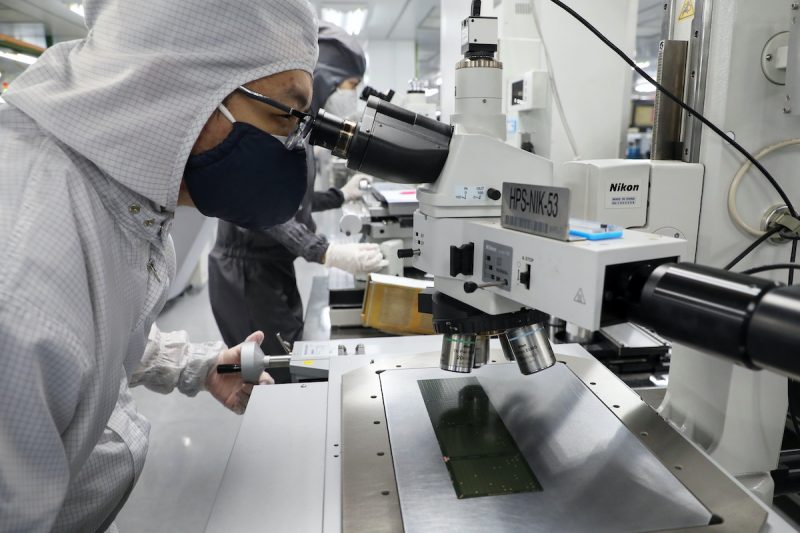Chinese customers of ASML remain in the dark about the fate of their existing machinery from the Dutch chipmaking equipment-maker, in light of the Netherlands government’s decision to join the US in its chip war against China.
The Dutch government announced plans on Wednesday to restrict exports of critical chipmaking technology to “protect national security.” However, it has not yet defined crucial aspects.
These include which models will fall under the restrictions and whether ASML can service chip-printing machines the company has already sold in China.
Also on AF: Money Alone Can’t Rescue China’s Chip Sector, Experts Say
“Those details still need to be worked out,” Dutch Trade Minister Liesje Schreinemacher told reporters on Thursday in Stockholm.
For Chinese customers, the restrictions would mean “that their ability to pursue leading-edge nodes development will be significantly curtailed,” Citi analyst Amit Harchandani said.
Meanwhile, ING analyst Marc Hesselink predicted that most Chinese chip makers will now opt to focus on “trailing edge” work or production of chips using slightly older technology.
The Chinese may have a competitive advantage there, and ASML’s sales in China could even grow modestly, he said.
Unique parts, constant maintenance
Europe’s largest technology firm by market capitalisation, ASML had 14% of its sales in China in 2022. It has sold more than 8 billion euros ($8.46 billion) worth of chip lithography equipment in China over the past decade.
Companies that buy ASML machines enter into service agreements for ongoing maintenance. The “installed base” segment contributed about 25% of ASML’s worldwide revenue in 2022.
The machines – which cost tens of millions of euros apiece and perform an essential step in creating the circuitry of chips – require unique parts and constant maintenance to remain in working order.
The Dutch firm has for now repeated its guidance for 2023 of flat sales in China of around 2.2 billion euros. That compares with 25% revenue growth overall, illustrating the likely impact of the restrictions.
An ASML spokesperson said on Thursday the company interprets the government’s remarks to mean that only a thin additional slice of its second-best product line will now be restricted in China, following a complete ban on its most advanced machines in 2019.
But there is an element of guesswork to that. “ASML is waiting for more information” the spokesperson said.
- Reuters, with additional editing by Vishakha Saxena
Also read:
Dutch Set to Curb Exports of Key Chipmaking Machines to China
Chip Executives Replace Pony Ma, Jack Ma at Key China Meet
Korean Firms Likely to See Cap on Advanced Chips in China: US
US Chips Act Fund Ban on China Expansion For 10 Years – FT
Guangzhou Splashes $29 Billion on Chip and Tech Race – SCMP
ASML Accuses China Employee of Chip Tech Theft – FT























